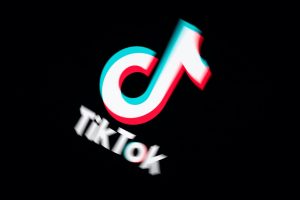Washington, D.C. – The U.S. Supreme Court appears inclined to uphold a federal law that mandates the sale or potential ban of TikTok’s popular social media platform, citing national security concerns linked to its Chinese parent company, ByteDance. During oral arguments on January 10, 2025, several justices expressed skepticism toward TikTok’s claims that the law infringes upon First Amendment rights, signaling a potential affirmation of the legislation set to take effect on January 19.
In April 2024, President Joe Biden signed the Protecting Americans from Foreign Adversary Controlled Applications Act (PAFACA), which requires foreign-owned applications deemed national security threats to divest their parent companies or face a U.S. ban. TikTok, with approximately 170 million American users, was specifically targeted due to bipartisan concerns over data privacy and potential influence by the Chinese government.
Supreme Court Deliberations
During the proceedings, TikTok’s legal representative, Noel Francisco, contended that enforcing the law could set a precedent allowing Congress to impose similar restrictions on other companies, potentially infringing on free speech rights. Francisco argued, “If Congress could do this to TikTok, it could come after other companies, too.” However, the justices appeared more persuaded by arguments emphasizing national security. Solicitor General Elizabeth Prelogar, representing the government, maintained that the law is essential to mitigate risks posed by foreign adversaries controlling mass communication channels within the United States. She stated, “Foreign adversaries do not willingly relinquish control over this mass communications channel in the United States.”
Should the Supreme Court uphold the law, ByteDance would be compelled to divest from TikTok by January 19, 2025, or face a nationwide ban. This would result in the removal of TikTok from app stores, preventing new downloads. Over time, the app would become inoperable due to the cessation of necessary updates and support. Existing users might initially retain access, but the user experience would degrade, leading to a gradual decline in functionality.
The potential ban has raised concerns among content creators and businesses that rely on the platform for engagement and revenue. TikTok has warned that a shutdown could result in significant financial losses for U.S. small businesses and creators, estimating a potential loss of $1.3 billion in the first month alone.
The court’s decision is notable because it coincides with the impending inauguration of President-elect Donald Trump, who has previously expressed opposition to a TikTok ban. Trump has indicated a preference for negotiating a resolution that addresses security concerns without resorting to an outright ban. However, unless the Supreme Court issues a stay or the incoming administration takes swift action, the law is set to be enforced as scheduled.
The Supreme Court’s forthcoming decision holds significant implications for the future of TikTok in the United States, balancing national security concerns against issues of free speech and economic impact. As the January 19 deadline approaches, all eyes remain on the highest court’s ruling, determining whether TikTok can continue to operate under its current ownership or face a mandated divestiture or ban.



